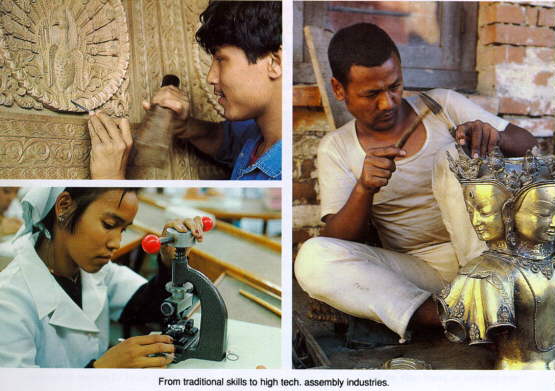NEPAL - FOREIGN INVESTMENT OPPORTUNITIES
Welcome to Foreign Investment Promotion Division Home Page
 The wages payable to workers in Nepal are comparatively very low. The low cost of living enables workers to offer their services at relatively low wages. The minimum wages rates set by the government are generally lower than the going wage rates for workers. Salaries of middle management executives, technical grade officers, engineers and other professionals are generally lower than in other developing countries. Permanent employees of a factory should contribute 10 percent of the monthly salary to a provident fund and the management should make a matching contribution. Gratitutes are payable to workers who have worked for over 5 years.
The wages payable to workers in Nepal are comparatively very low. The low cost of living enables workers to offer their services at relatively low wages. The minimum wages rates set by the government are generally lower than the going wage rates for workers. Salaries of middle management executives, technical grade officers, engineers and other professionals are generally lower than in other developing countries. Permanent employees of a factory should contribute 10 percent of the monthly salary to a provident fund and the management should make a matching contribution. Gratitutes are payable to workers who have worked for over 5 years.
HMG
Ministry of Industry
Foreign Investment Promotion Division
Singha Durbar
Kathmandu, Nepal
Tel: 216692
Fax: 220319
Tlx: 2610MOI NP
Copyright 1996 by Foreign Investment Promotion Division, Ministry of Industry, HMG
Webmaster: Anita Shrestha, AMAA, INC